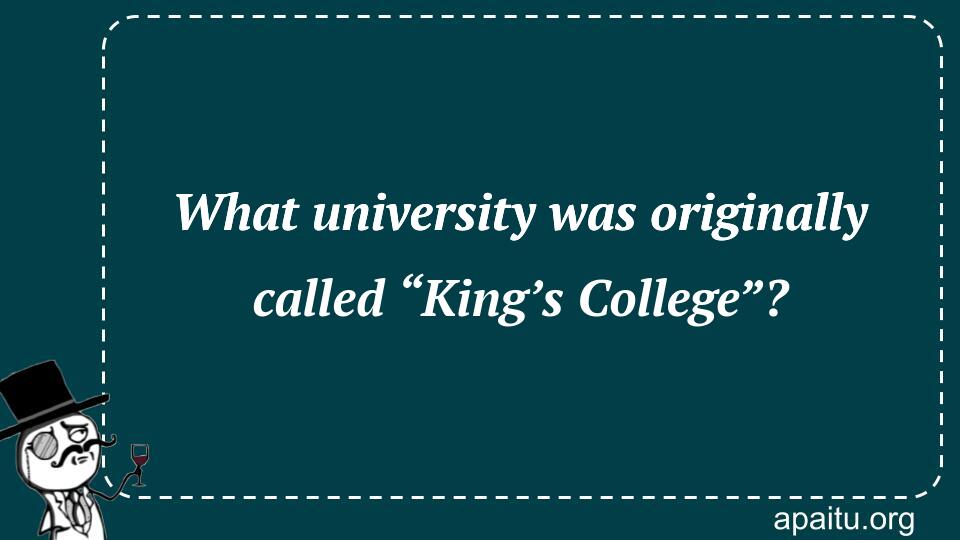Question
Here is the question : WHAT UNIVERSITY WAS ORIGINALLY CALLED “KING’S COLLEGE”?
Option
Here is the option for the question :
- Columbia University
- Yale University
- Georgetown University
- Notre Dame
The Answer:
And, the answer for the the question is :
Explanation:
King George II of England issued a royal charter in 1754 that led to the establishment of King’s College. Eight pupils attended the inaugural lesson at Trinity Church in what is now lower Manhattan. The school had to close in 1776 for eight years due to the American Revolution, and when it returned in 1784 after the war, it had a new name: Columbia College. Later, the university relocated to upper Manhattan, and in 1896, the Ivy League institution once more changed its name to Columbia University.

Columbia University, a prestigious institution located in New York City, has a rich history that dates back to the colonial era. Originally known as “King’s College,” Columbia University was founded in 1754, making it one of the oldest universities in the United States. The university’s evolution from King’s College to Columbia University reflects its transformative journey and its enduring commitment to academic excellence, intellectual pursuits, and societal impact.
King’s College, as it was first named, was established by royal charter granted by King George II of England. The college’s primary mission was to educate ministers for the Anglican Church and to foster intellectual and moral development among students. It was the first institution of higher learning in the Province of New York and played a crucial role in shaping the educational landscape of the American colonies.
The college’s early years were marked by academic rigor and a commitment to classical education. The curriculum focused on the humanities, languages, mathematics, and natural sciences. Students were immersed in a broad range of subjects, including Latin, Greek, rhetoric, philosophy, and theology. The college’s emphasis on a well-rounded education laid the foundation for its future as a leading institution of higher learning.
In 1776, during the American Revolution, the college suspended operations due to the political unrest and the occupation of New York City by the British forces. Following the revolution, the college faced financial difficulties and struggled to regain its footing. However, in 1784, the institution reopened under a new name and transformed itself into a nonsectarian, private university. It was at this point that King’s College became Columbia College, a name inspired by Christopher Columbus and symbolizing the university’s connection to the spirit of exploration, discovery, and intellectual curiosity.
As Columbia College, the institution experienced a period of growth and expansion. It broadened its curriculum, introduced new academic programs, and attracted renowned scholars to its faculty. The university’s commitment to academic excellence and innovation solidified its reputation as a leading educational institution in the United States.
Over time, Columbia College expanded to become Columbia University, reflecting its evolution into a comprehensive university with multiple schools and disciplines. The university’s growth was accompanied by the establishment of professional schools, such as the Columbia Law School, the College of Physicians and Surgeons, and the School of Mines, which later became the School of Engineering and Applied Science. These additions further enriched the university’s academic offerings and solidified its position as a renowned center for research and scholarship.
Columbia University stands as a world-class institution known for its rigorous academic programs, distinguished faculty, and gro